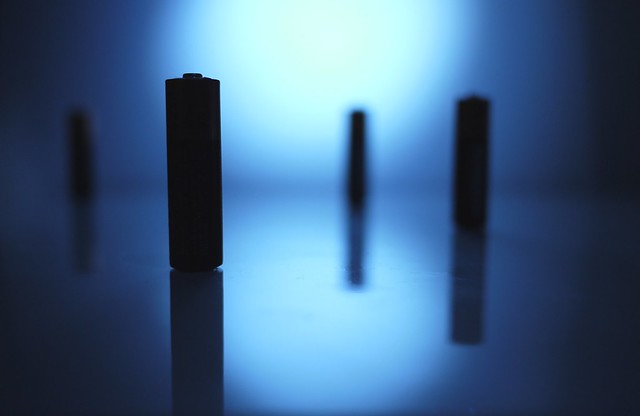Show more about LiPo battery swelling
Jul 11, 2019 Pageview:1436
LiPo batteries are referred to as such because of their long name, Lithium Polymer batteries. LiPo batteries are the newest type of batteries that are beginning to be used for a variety of consumer electronic devices. The popularity they have been gaining in media such as the radio control industry is undeniable, especially in the last few years. They are now the most popular choice whenever the objective is to run for long times and in high power.
LiPo batteries have definitely taken the world upside down when it comes to innovation in electrical technology. Considering the have nearly twice as much capacity; weight half the amount of NiCd or NiMH battery packs; retain their charge for a much longer time than other different kinds of batteries when they aren’t being used, and do not have the tendency to develop a memory as other batteries actually do, then they are a much better option than their counterparts NiCd or NiMH batteries.
Nowadays, no other battery provides the amount of energy a LiPo battery is actually able to, while at the same time delivering high amounts of current. And if they do, it is definitely not in such a small package. This essentially means LiPo batteries are able to provide longer flight times, they are easier to be maneuvered with, and they are much faster.
However, with great power often come issues. The issues of the LiPo battery aren’t that intense and can actually be prevented rather easily, anyhow, the swelling of the Lithium Polymer battery is a very real thing you are going to have to deal with eventually. Here we explain to you everything that has to do with swelling batteries.
What causes LiPo battery to swell?
That a lithium-ion battery generates gas is pretty normal, it doesn’t matter if you take good care of it and never abuse of its voltage. Chances are that normal day use finishes by making your battery generate gas through an inevitable process, electrolyte decomposition.
Electrolyte decomposition is a process in which an electrolyte breaks down chemically. In a LiPo battery, the breaking down of these electrolytes has as an unavoidable consequence the production of lithium and oxygen. The release of both these elements causes them to bond and become lithium oxide on the anode and cathode of the battery (this depends on whether you are charging the battery or discharging it when they first form). Other than this, you are likely to end up having excess oxygen that didn’t adhere to neither another nor the cathode, and, as you might have guessed, is part of what starts causing the battery to swell. As you might know from chemistry class (or not) oxygens has the tendency of combusting rather often. Oxygen is also the beginning of the welling as it performs and helps other processes. Other than oxygen, when looking inside a battery you are likely to find other gases like Carbon Dioxide and carbon monoxide, which can be triggered and expanded by the oxygen presence.
The major issue that comes with this decomposition process, though, is that, first of all, is much more likely to happen when the battery is over-discharged, or overheat.
Essentially, the battery has three main components that play a role in the swelling process. There is the anode, the cathode, and the electrolyte. The cathode and the anon are positive and negative terminals found on your battery, we discussed them above since the lithium oxide attached to them. The electrolyte allows the ions to charge, which means that with its decomposition comes the decomposition of the battery’s source of power itself.
Is swollen LiPo battery dangerous?
Yes, there is no way to go around it, a swollen LiPo battery is very dangerous. Seriously dangerous, there are a lot of examples and situations in which puffed batteries ignite, which is very dangerous for anyone near them. This obviously doesn’t mean that every LiPo battery that swells is going to explode and harm you, not at all. What it means is that the chances of the battery catching on fire are potentially increased once the battery becomes swollen. However, the fact that it might not explode shouldn’t stop you from carefully measuring the risks and avoiding swollen batteries at all costs.
What can you do when LiPo battery swelling after use?
If you want just one piece of very helpful advice, don’t fix it. Please. Just don’t. There are many videos on the internet claiming you can restart a swollen battery and there is no risk or provide you with weird complicated methods to swollen it. But you shouldn’t follow them, think of a battery as a person, once they completed their normal cycle of life you shouldn’t try to bring them back.
Trying to fix the battery is not worth the high risk of hurting yourself while doing it, or burning your house/shop down. Instead, you should properly dispose of it. The proper way to do so is just like you would any other battery.
The first thing you need to do is discharge it completely. There are two methods you may use for this. You can either hook it up to a light bulb and wait, or you can put the battery inside a bucket with water mixed with salt. When hooking it up to a light bulb, you should use bulbs that are 12 V and that are halogen (preferably). It is easier to attach wires to them since soldering them is easier. You just need to plug it in and wait until it is drained. You can also hook it to multiple so it discharges at your preferred rate. After the battery has been completely discharged, then you only have to find a battery disposal center where they recycle the dropped off batteries you can bring the battery to. Take the battery there once you have called and asked if they will accept a damaged battery as well.
- Prev Article: How to store LiPo batteries
- Next Article: What do you think about 18650 USB battery?
Leave Message
Hottest Categories
-
Hottest Industry News
-
Latest Industry News











